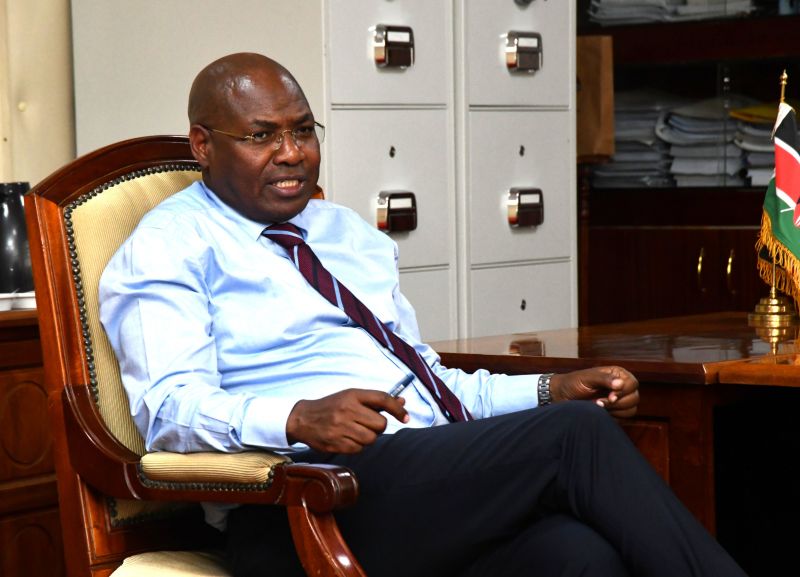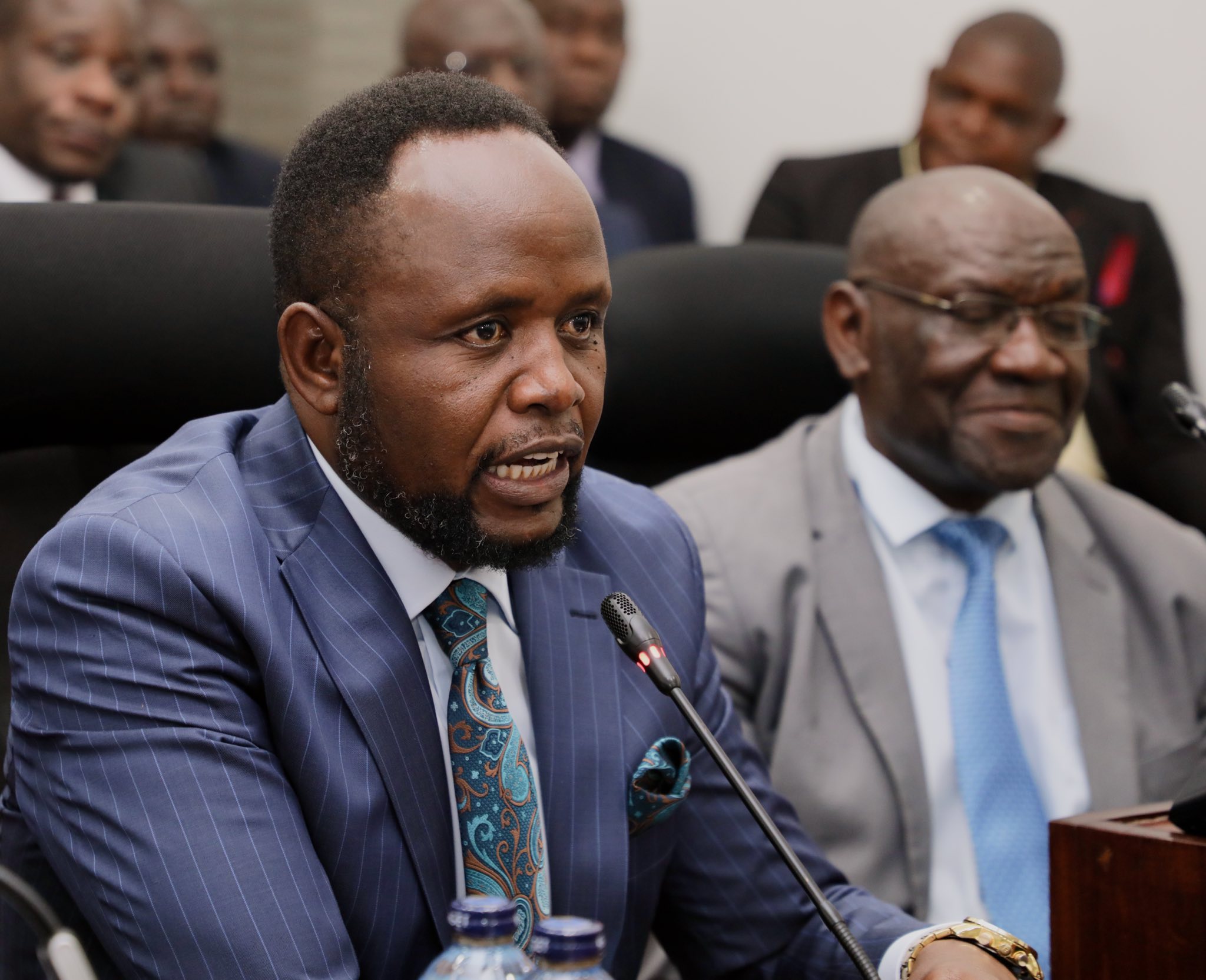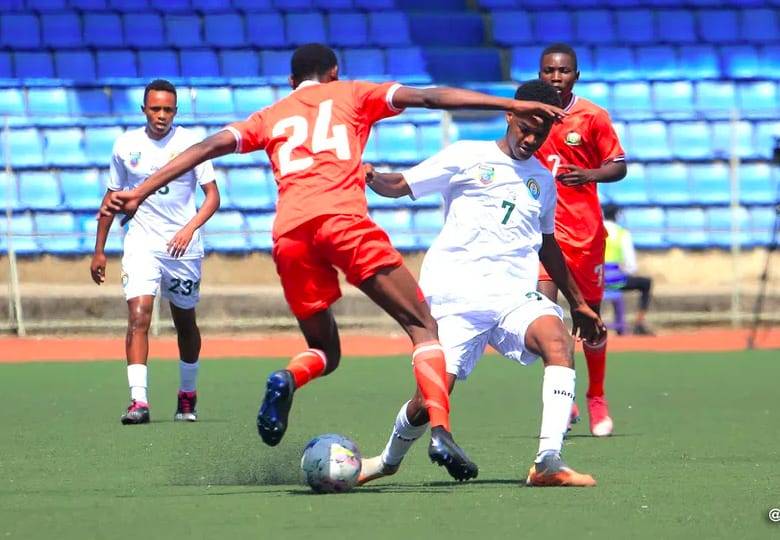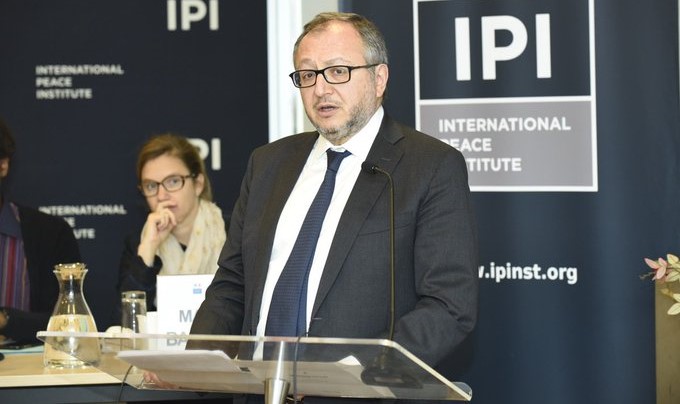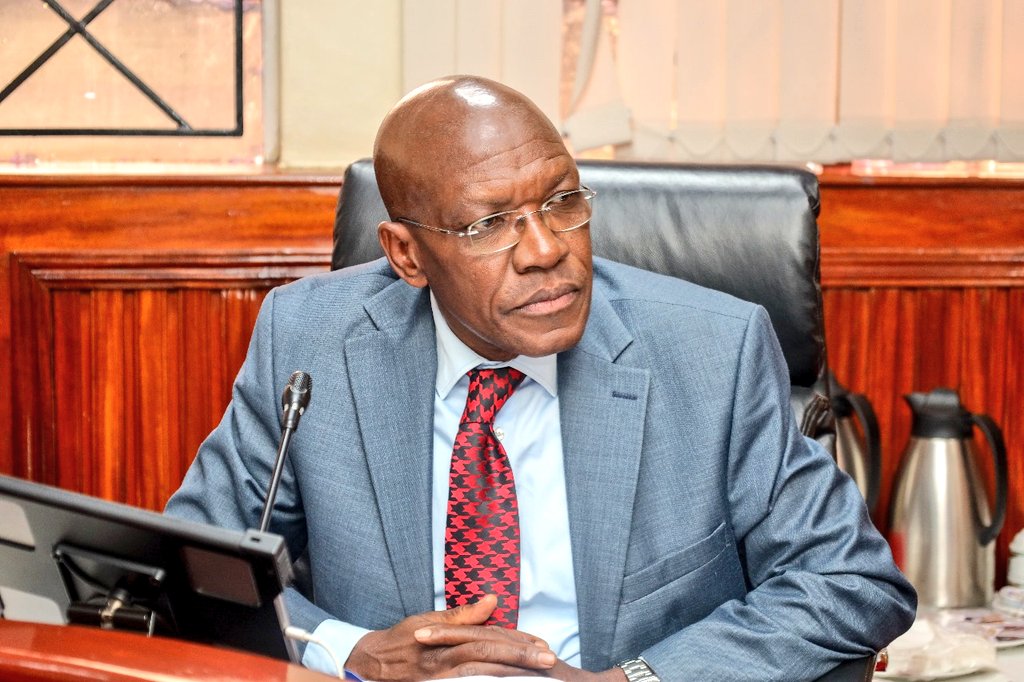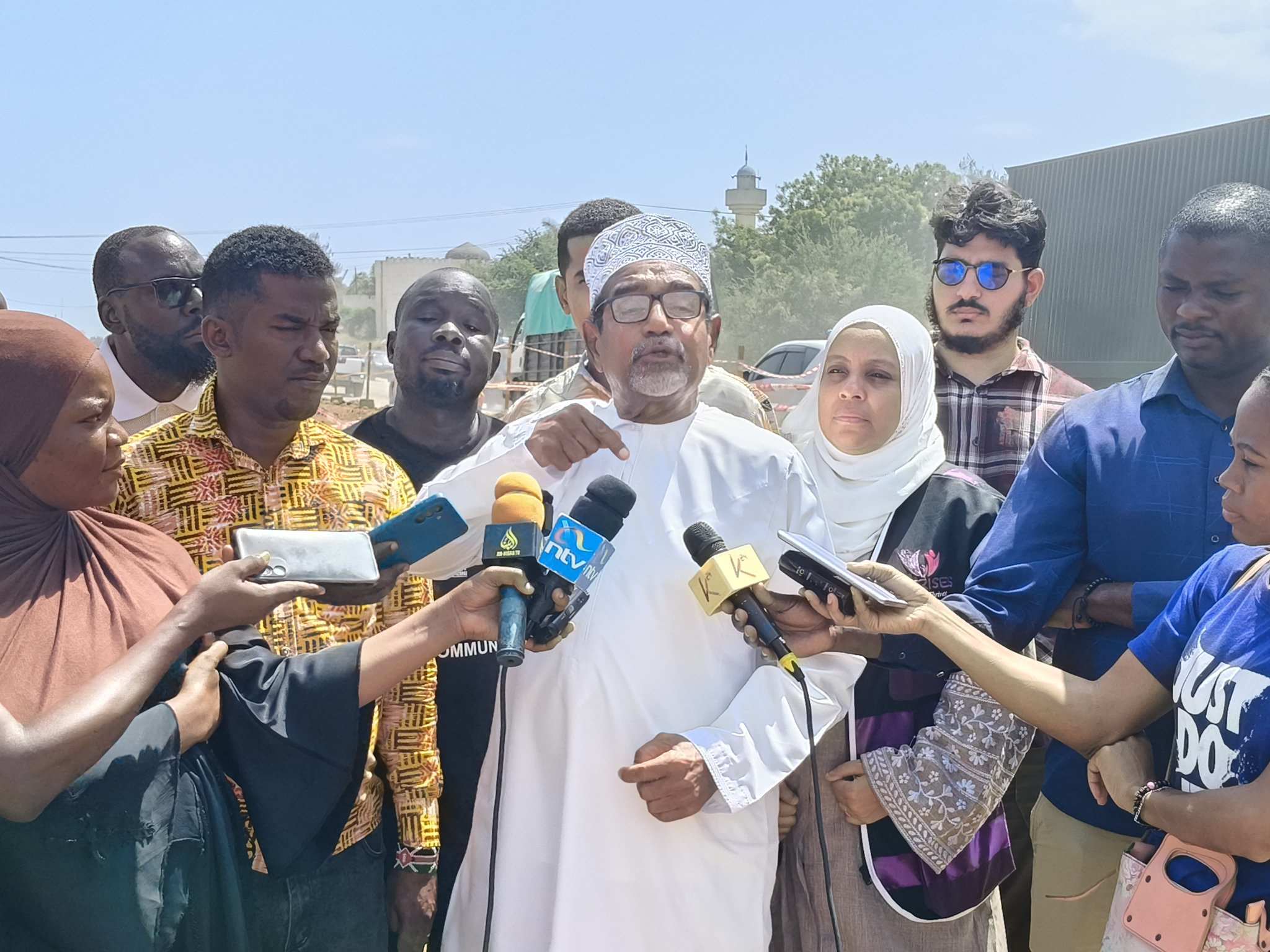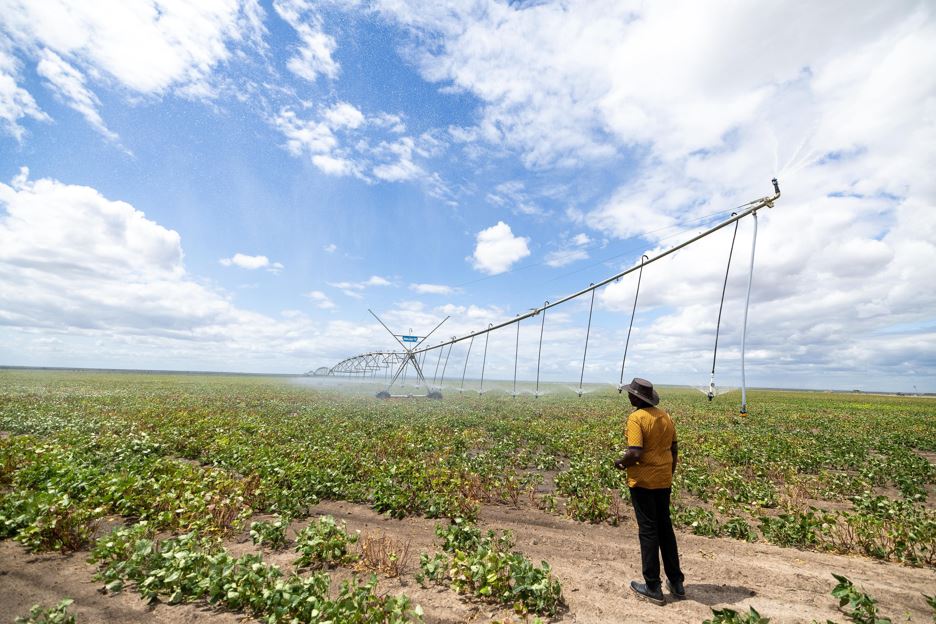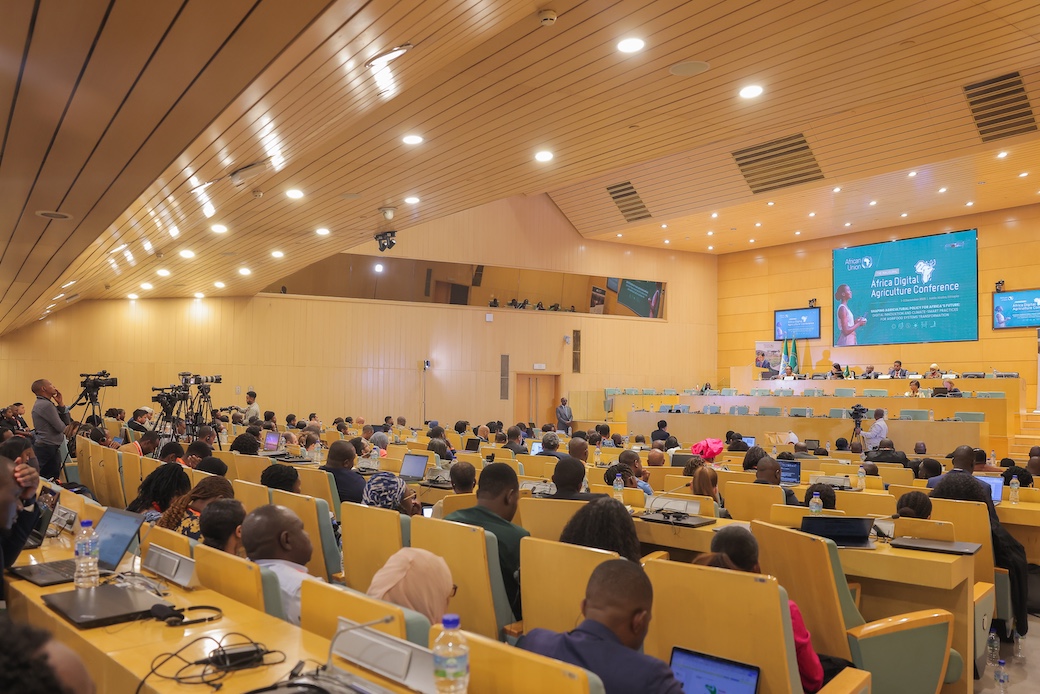Collins Ouma: How guard who faced wrongful arrest, police brutality ended up getting justice after 12 years
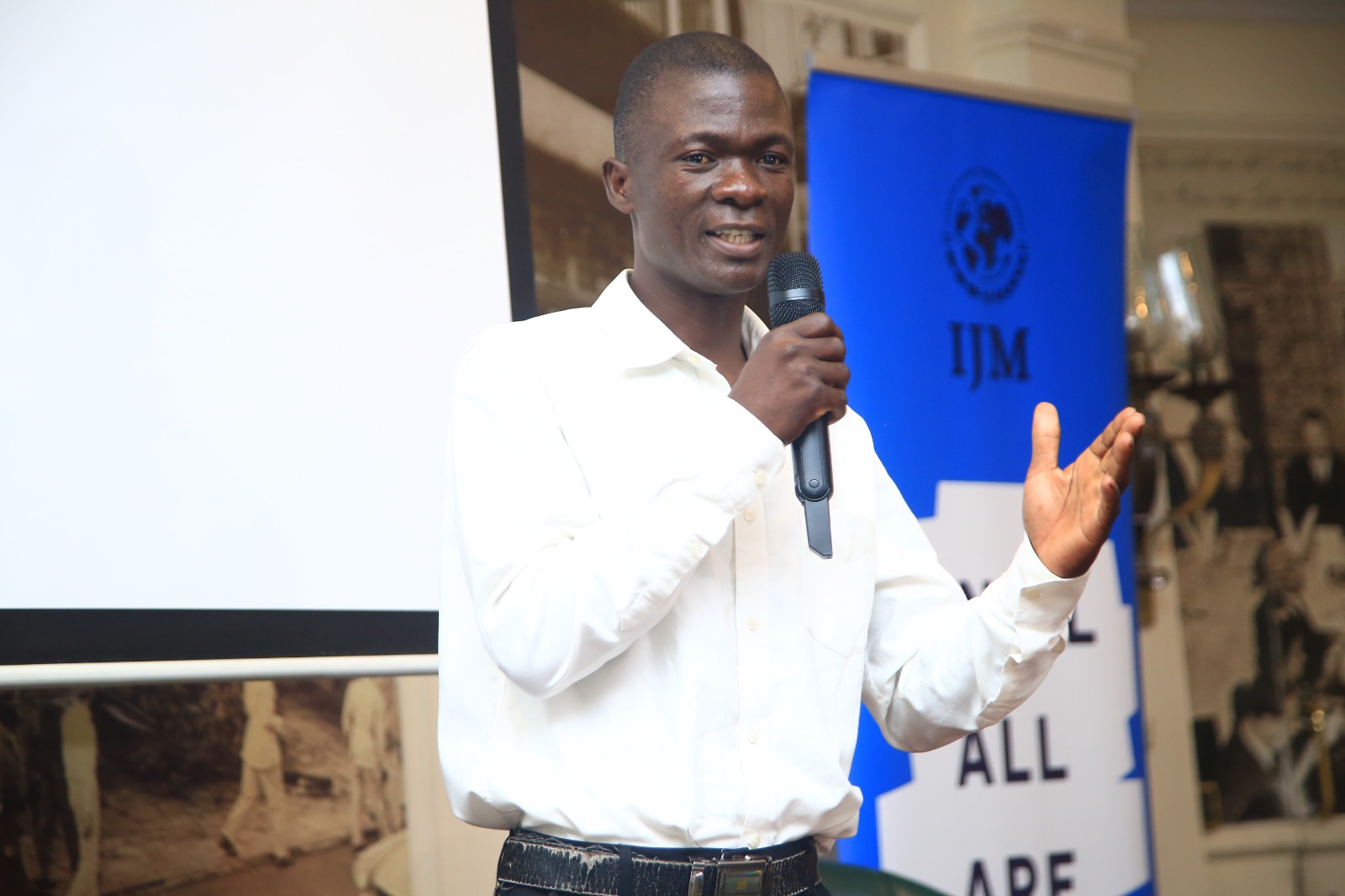
In 2017, four years later, the court unconditionally released Ouma and Atelu, finding them not guilty of any wrongdoing. Justice John Mativo ruled that the prosecution of the two had no factual basis and violated their constitutional rights.
The wheels of justice turn exceedingly slow, but grind exceedingly fine is a phrase often attributed to Chinese philosopher Sun Tzu and resonates deeply with 36-year-old Collins Ouma Musikoyo, a survivor of police brutality and wrongful prosecution.
On the night of January 7, 2013, at around 9:30 pm, Ouma was guarding a building along Moi Avenue, just like any other night, when he was approached by police officers seeking directions to Mwihoko Bar and Restaurant. He pointed them towards the establishment, but the officers insisted that he accompany them.
More To Read
- Kanja admits police could have done better in handling Gen Z protests, advocates for training
- Gen Z protests in Kenya: Key facts (2024-2025)
- Amnesty report shows at least 128 killed, 3,000 arrested in 2024–2025 Gen Z protests
- Court rules Dutch national Elwin Ter Horst unfit to stand trial
- Court recommends murder charges against three officers over 2022 Masimba killings
- Kigame seeks court nod for private prosecutions over 2024–2025 protest abuses
Ouma explained that abandoning his post could cost him his job, but his protests were ignored. He was arrested, along with John Atelu Omilia, another guard stationed at a nearby building.
The two were bundled into a waiting police vehicle and taken to Central Police Station, where they were held for a day. On January 9, they were arraigned in court and charged with robbery with violence.
Unbeknownst to them, a police officer on patrol had recently been robbed nearby of a pair of handcuffs, a firearm, a walkie-talkie, a newspaper, and Sh200,000 in cash. Ouma and Atelu were caught up in a police sweep to recover the stolen items- victims of pure circumstance.
Now, 12 years later, the former night guard who had fled poverty in search of a better life in Nairobi reflects on the ordeal with a mix of sorrow and gratitude. Once hopeless, Ouma’s life has taken a new turn after the court awarded him and his co-accused Sh2 million each in compensation for general damages.
Ouma recalls that both him and his colleague denied the charges. They were each granted bail set at Sh1 million, an amount they could not afford. The case dragged on for years while they remained in remand.
During this time, Ouma’s wife, Nancy Oluoch, gave birth to their first child and moved back to the village, having relied solely on her husband for financial support. She occasionally visited him in prison and eventually connected with the International Justice Mission (IJM), which stepped in to assist.
In 2017, four years later, the court unconditionally released Ouma and Atelu, finding them not guilty of any wrongdoing. Justice John Mativo ruled that the prosecution of the two had no factual basis and violated their constitutional rights.
“A declaration is hereby issued that the prosecution of the petitioners in Criminal Case No. 120 of 2013 was commenced without any factual basis,” stated Justice Mativo.
Their legal team successfully sued for wrongful prosecution and human rights violations, securing the Sh2 million compensation. However, it took another seven years for the funds to be disbursed.
“In Kenya, victims of wrongful arrests face significant challenges in obtaining compensation, primarily due to systemic barriers within the legal and justice frameworks,” notes IJM.
Most victims, they add, come from vulnerable communities lacking access to legal representation or the knowledge required to navigate such processes, an issue that significantly hampers their pursuit of justice.
“The process can be lengthy and complicated, often requiring victims to navigate a maze of bureaucratic procedures. Many lack the resources or legal support to prove their innocence and secure redress,” the organisation states.
During his trial, Ouma had been employed by a security firm, which he says offered him no support. Upon his release, he chose not to return to his former employer. Instead, he took on casual jobs to support his family.
In 2023, a breakthrough came when IJM Advocate Ruth Kihuria received a call from the Office of the Attorney General confirming that Ouma’s compensation had finally been processed.
“I wondered, is it true? Is the money really out, or just another empty promise? I couldn’t believe what I was hearing,” Ouma told IJM after receiving the news.
Today, his life has taken a new turn. He has purchased land for himself and his parents, set up a posho mill business for his wife, and built rental houses in his home county of Kakamega, an estate he has named “Champion Estate”.
He coined the name from Kenya Champions of Justice, an association of survivors of police violence that promotes dialogue between communities and law enforcement to end abuse and impunity.
Ouma is also a member of the Leadership Council of the Global Survivor Network, an international group of survivor leaders working to strengthen justice systems to protect vulnerable communities. Since its launch in 2019, the network has expanded to include survivor-led groups from around the world.
“I want to advocate for all poor people to be protected from violence. I campaign for justice in my community and in my country, to help build a system that protects everyone,” he says.
As Ouma rebuilds his life, his journey stands as a powerful testament to the resilience of the human spirit and a reminder that justice, though delayed, is still within reach.
“People look at me differently now. There is a sense of respect that wasn’t there before,” he says.
With data from the Missing Voices Coalition showing that cases of enforced disappearances rose nearly fivefold last year, a period that also recorded the highest number of extrajudicial killings in six years, Ouma’s story is a timely reminder that all citizens are protected under the law, and justice is worth pursuing.
Top Stories Today
